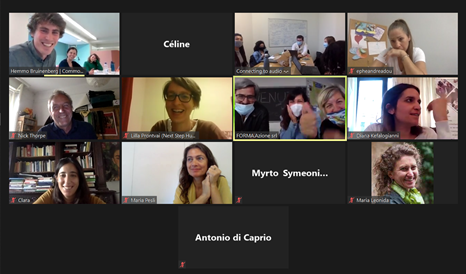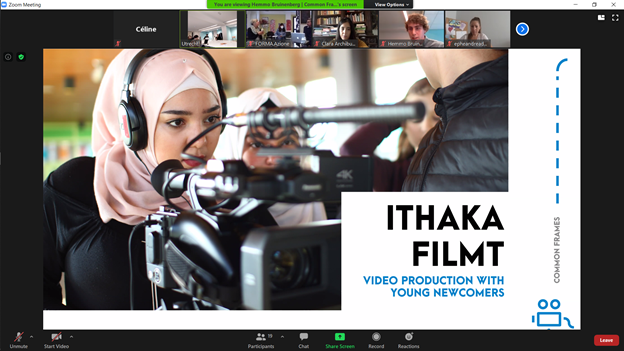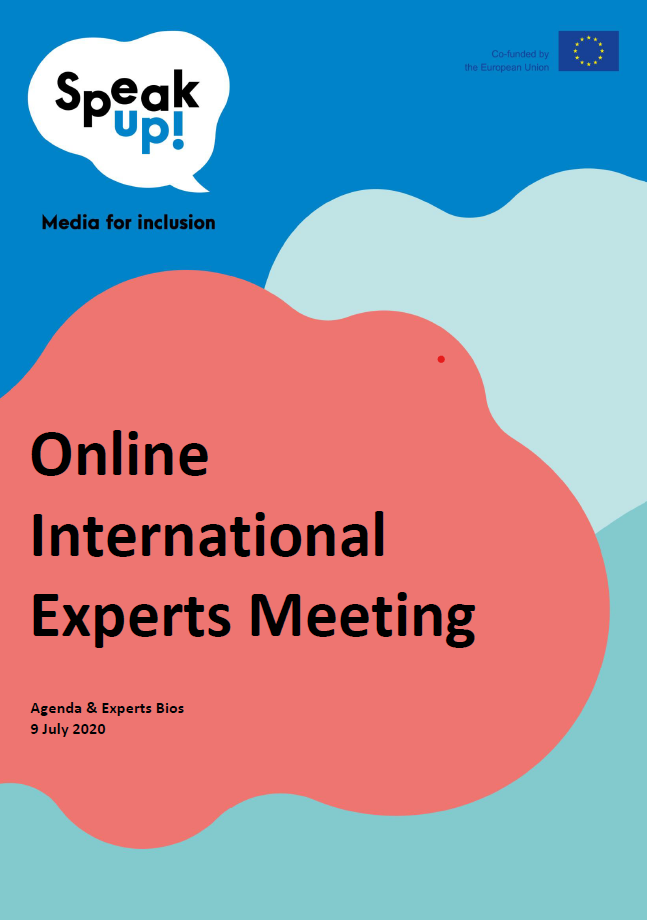UTRECHT, PERUGIA, ATHENS, BUDAPEST, LONDON, PARIS
On 2nd October 2020, Speak Up! partners organised the First International Experts Meeting under a hybrid format after the cancellation of the in-situ meeting in Utrecht due to COVID-19 travel restrictions. Despite the complex global context, most of the partners and experts were able to meet in each country in the cities of Utrecht, Perugia, Athens, Budapest, London and Paris, in order to gather around the same table and connect with the other countries via online platforms.

The goal of the meeting was to consult experts and practitioners in the fields of media, media and information literacy, migrations issues and from other convergent fields on the ways to foster the inclusivity and integration of young, newly arrived young migrants into their new host countries.
Based on the findings of the introductory meeting held in July, the International Expert Meeting gravitated around the five main topics on which our experts shared their best practices, as well as presented their conclusions and recommendations. Here’s a snapshot:
- Media and Information Literacy and Intercultural Dialogue: Bringing people together, in person or remotely, is widely known to have a positive outcome in terms of solidarity / connection / anti-polarizing effects.
- Media Production tools for inclusion: Media does play a vital role for young people in general, and more so for young migrants. Hence, it might be very helpful to train young people to use media tools to promote their stories, although being traumatic. So, instead of only focusing on the trauma of their own stories, it would be better to highlight the fun aspect of working together producing radio and/or video content. Ultimately, they should become active news creators and not passive subjects.
- Media representation of migrant people: Media can be a powerful tool creating representations, stereotypes, etc. There are many factors to consider when communicating about one subject, especially migration. Terminology should be selected carefully and migrants should be playing an active content creative role as well as being a source of information. They should also have the opportunities to collaborate as trainers/experts as it is currently being done by ARCI in Italy.
- Media usage of terminology around migrant people: Change in terminology might not be necessary, but journalists and every other authors writing on the topic of migration should closely relate to the context and take in account the weight of the words in the language used. Additionnally, it should be made explicit how one uses any terminology, be accountable for it and reflect on it.
- Best practices on MIL for newly arrived migrants: It is also important and useful to learn from other experiences and good practices that have proven to be effective, impacting in terms of inclusiveness progression in the communities of both locals and migrants. And, connecting with other key stakeholders in the field, as film festivals organisers, social inclusion programmes and projects, etc. is always worthwhile.
The next step is to build on existing experience of practitioners, academics, and migrant and refugee people to produce in the upcoming months a Manifesto and its implementing strategy to foster a smooth inclusion of young people on the move in their host countries. The document will become public during the 2nd international expert meeting to take place in June 2021 in Hungary or Austria.

International Experts Meeting

The goal of the international experts meeting is to consult a panel of experts on the goals of the project Speak Up! Media for Inclusion.
With Speak Up! Media for Inclusion we want to foster the inclusivity and integration of young newly arrived migrants into their new communities by disseminating good practices in media education.
The goal of the experts meeting is to share our good practices and foster each other’s knowledge on the topic of migration in relation to media education and/or media literacy.
In addition, at the end of the two experts meetings (online and offline), the experts will develop a manifesto and its implementing strategy for journalists and social media activists in Europe to better address migration issues in their media.
